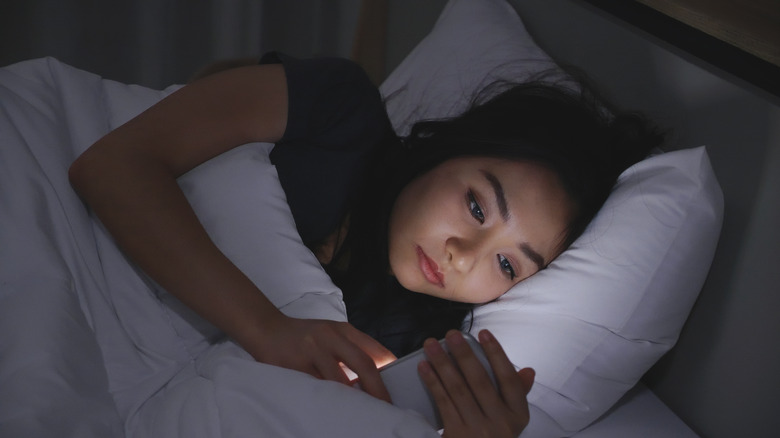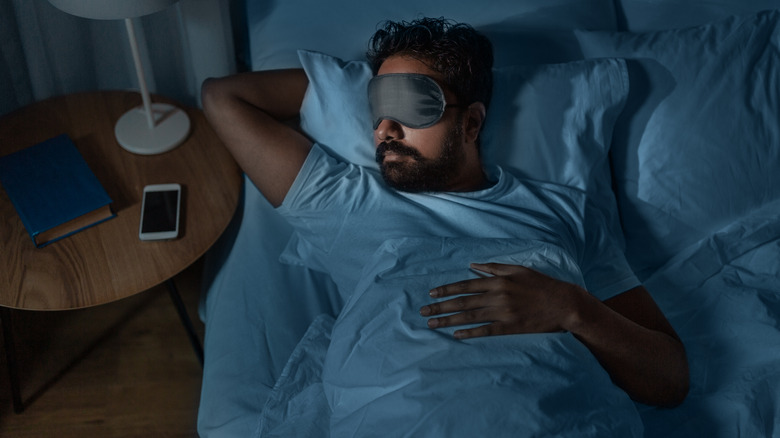Study Reveals Startling Way Sleeping In Dim Light Can Affect Your Health
Our lives are filled with many forms of artificial light. From the screens on our televisions, computers, and phones to light bulbs, we are bathed in it daily. While artificial light is convenient, that doesn't mean that it is always good — especially at night. In fact, current research suggests that artificial light at the end of the day could be damaging our health.
One concern with artificial light involves blue light around bedtime. WebMD reports that exposure to blue light at night had far-reaching effects on health, making it a growing concern. In fact, it's been linked to various health conditions like depression, cancer, metabolic diseases, inflammation, and heart disease.
Another 2016 study published in PLOS ONE revealed that exposure to blue light in the evening hours might alter how the body metabolizes glucose. Over time, this kind of disruption could result in weight gain and diabetes (per Science Daily). Now, new research suggests that even minimal exposure to artificial light at night can be harmful.
Exposure to dim light increases risks for certain health conditions
A 2022 study conducted by Northwestern University showed that even low exposure to dim light causes your heart rate to rise at night, which results in poor rest. Even more startling was the discovery that just one night of sleeping in a room with low lighting can have negative results, including impaired heart and endocrine health.
Simply explained, light exposure during the day increases the heart rate through the nervous system, which raises awareness and prepares us for daily challenges. But the heart rate needs to lower at night so the body can perform restorative sleep. When we sleep with even a little bit of light on, it increases the heart rate, which means that the body's nervous system is still activated. Researchers also found that people who slept with relatively low amounts of light experienced a spike in insulin resistance, leading to heart disease, metabolic syndrome, and diabetes.
To lessen the effects of artificial light at night, the university recommends turning all lights off, and if you must have one on, make it an amber or red light that is close to the floor. You can also use blackout shades and eye masks.


